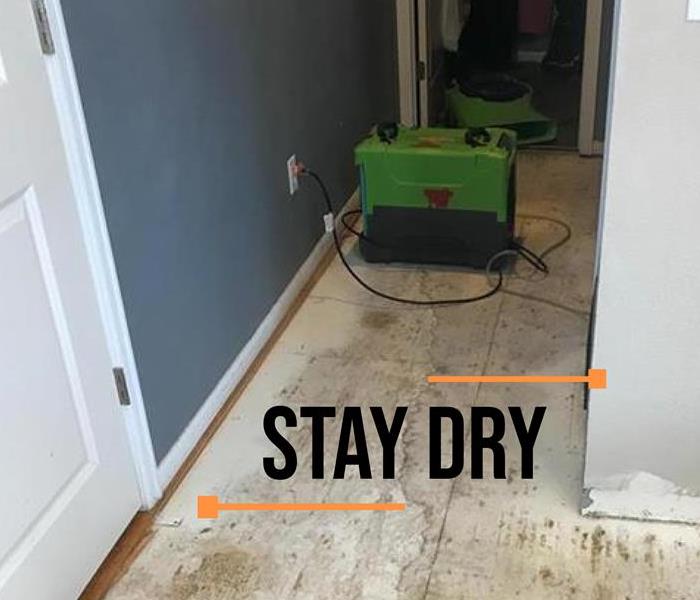Mold Remediation Denver Co
5/9/2024 (Permalink)
Effective Mold Remediation Strategies for Denver, CO Homes and Businesses
Mold growth in Denver properties can be a common issue, especially given the city's varied climate which can range from dry summers to snowy winters. This can create conditions conducive to mold growth, particularly in poorly ventilated or water-damaged areas. Understanding how to handle mold effectively is crucial for maintaining a healthy living environment and ensuring the structural integrity of your property.
Recognizing Mold Problems in Denver
The first step in combating mold is to recognize its presence. Mold often manifests as a musty smell and can be visible in areas with high moisture levels such as bathrooms, kitchens, basements, and around leaking pipes. It may appear as spots varying in color from black and green to white and orange.
Why Immediate Mold Remediation is Crucial
- Health Risks: Mold exposure can lead to various health problems, especially for those with respiratory issues, allergies, or compromised immune systems. Symptoms include coughing, sneezing, sore throats, and in severe cases, asthma attacks.
- Property Damage: Over time, mold can deteriorate building materials, leading to costly repairs and structural damages.
- Decreased Property Value: Visible mold growth can negatively impact the value and marketability of a property.
Professional Mold Remediation Services in Denver
For effective mold removal and prevention, professional remediation services are recommended. Here’s what Denver residents can expect from a professional mold remediation process:
- Assessment: Experts will first assess the extent of the mold issue, using tools to detect mold even within walls.
- Containment: To prevent mold spores from spreading during cleanup, the affected area will be isolated.
- Filtration: HEPA filters will be used to clean the air of mold spores and other contaminants.
- Removal: Mold-infested materials will be removed or treated. Porous materials like drywall or insulation might need to be discarded, while non-porous surfaces can be cleaned and disinfected.
- Drying: Excess moisture will be eliminated to ensure the area is thoroughly dry; this prevents mold from returning.
- Restoration: Finally, any materials removed during the mold remediation will be repaired or replaced.
Preventing Mold in Denver Homes and Businesses
Prevention is key to avoiding mold issues. Here are some tips to keep your Denver property mold-free:
- Control Humidity Levels: Aim to keep indoor humidity below 50%. Dehumidifiers can help in naturally damp areas like basements.
- Ensure Proper Ventilation: Use exhaust fans in bathrooms and kitchens to reduce moisture.
- Fix Leaks Promptly: Repair any plumbing leaks or issues with roof and windows to prevent water accumulation.
- Regular Inspections: Especially after Denver’s snow melts or heavy rains, inspect your property for any signs of water damage.
For Denver residents, addressing mold issues promptly and effectively is crucial for maintaining a healthy environment and protecting property value. Considering the local climate and potential for moisture, it’s wise to have a plan for mold prevention and a trusted professional for remediation.





 24/7 Emergency Service
24/7 Emergency Service
